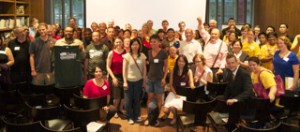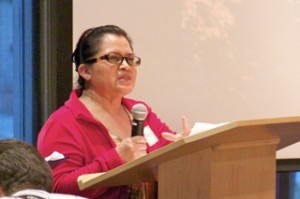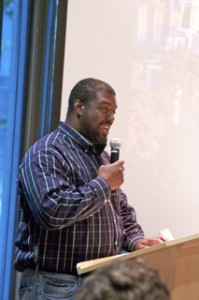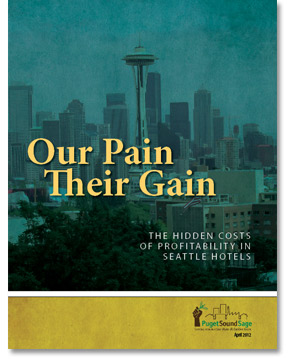Broad Coalition Of Labor Unions Enters Into Partnership With Arena Investors, Ensuring Good Jobs For Decades To Come
SEATTLE – At a rally in Seattle’s stadium district, concessions workers, janitors, stagehands, arena operations workers and security officers declared their support today for the Memorandum of Understanding (MOU) regarding the proposed basketball arena, currently being considered by the Seattle City Council and the King County Council.
“The Sonics coming back would mean full-time work for me again,” says David Artemison, who currently works at Key Arena, Safeco Field, and Century Link Field, and used to work at Sonics games. “It means a chance at a better life for me and my coworkers.”
David Artemison, who currently works at Key Arena, Safeco Field, and Century Link Field, and used to work at Sonics games. “It means a chance at a better life for me and my coworkers.”
Before the Sonics left Seattle, hundreds of stadium workers made a living working at baseball games in the summer and NBA games in the winter. They lost year-round employment and have been struggling ever since.
Workers were joined by Mayor Mike McGinn, King County Executive Dow Constantine and Seattle City Council member Mike O’Brien. King County Councilmember Joe McDermott sent a statement in support.
“This project is a groundbreaking private-public partnership, and we commend Mayor McGinn, King County Executive Constantine, City and County Council members, and Chris Hansen for their contributions to the MOU,” says Erik Van Rossum, President of UNITE HERE Local 8, the union representing food service workers at stadiums in Seattle.
“This is how economic development in Seattle should work” added Sergio Salinas, President of SEIU Local 6. “We worked together to create a win-win solution that lifts families out of poverty and rewards hard work. We believe the environmental and economic reviews built in to the current MOU will help protect Seattle taxpayers and the Port of Seattle from adverse impacts of the arena.”
Tracey Thompson, Principal Officer of Teamsters Local 117 remarked: “This partnership is a model for our region. It stands in stark contrast to the situation that service workers at the Airport and truck drivers at the seaport are dealing with. Hardworking port truck drivers and airport service workers struggle to make ends meet while working for shippers and contractors working at the seaport and airport who do not pay a living wage.
“If the arena moves forward,” says Artemison, “everybody will get their fair share. This is very exciting in these hard economic times.”
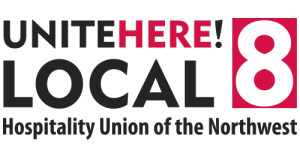
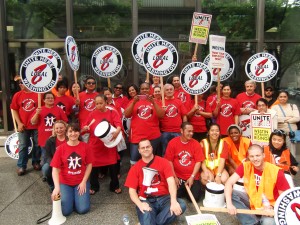 Last week, hundreds of workers from UNITE HERE Local 8 and Local 9 voted to merge into one local. This means:
Last week, hundreds of workers from UNITE HERE Local 8 and Local 9 voted to merge into one local. This means: